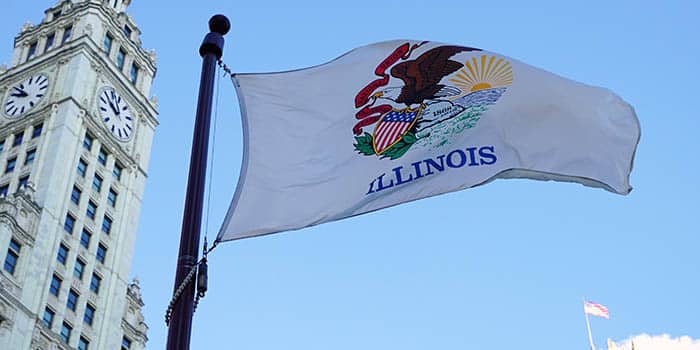- Casino
- By State
- Alabama
- Alaska
- Arizona
- Arkansas
- California
- Colorado
- Connecticut
- Delaware
- Georgia
- Florida
- Hawaii
- Idaho
- Illinois
- Indiana
- Iowa
- Kansas
- Kentucky
- Louisiana
- Maine
- Massachusetts
- Maryland
- Michigan
- Minnesota
- Mississippi
- Missouri
- Montana
- Nebraska
- Nevada
- New Hampshire
- New Jersey
- New Mexico
- New York
- North Carolina
- North Dakota
- Ohio
- Oklahoma
- Oregon
- Pennsylvania
- Rhode Island
- South Carolina
- South Dakota
- Tennessee
- Texas
- Utah
- Vermont
- Virginia
- Washington
- West Virginia
- Wisconsin
- Wyoming
- By State
- Slots
- Poker
- Sports
- Esports
Californians Reject Sports Betting Proposition 27 in Latest Poll

Although sports betting has been rapidly gaining popularity throughout the US since the 2018 legislative changes, there are still states that are being cautious with adoption, and – as few as they might be – some are downright against sports betting. This latest Public Policy Institute of California survey inquired where Californians stand on the issue, as sports betting isn’t quite legal there yet.
“No” to Sports Betting in California?
The Public Policy Institute of California (PPIC) released a new survey on Wednesday, September 14, headlined “Californians and Their Government” and among a host of current topics derived from midterm campaign talk, was the issue of legalizing sports gambling in the Golden State. It might be surprising for some, but it seems Californians are very heavily set on the subject with a resounding “No” if this survey’s numbers are anything to go by. A whopping 54% of responders were against Proposition 27 with only 34% supporting it.
Proposition 27 would see major sportsbook operators able to partner up with local tribes and offer mobile sports betting through an app, as well as placing wagers on all types of non-athletic competitions. This is not the only gambling-related proposition, however, with Proposition 26 deserving a spot in the conversations as well. According to it, sports betting would be available in-person at tribal casinos and the four privately-owned horse-racing tracks. Of course, in the fashion of tribal operations, for them, this would require the usual extra step of reaching their own agreements, or pacts, with the state they operate in.
Two Sides of Different Coins
While Proposition 26 is basically about tribal business, Proposition 27 has some major backing from US sports betting operators. FanDuel, DraftKings, Fanatics, PENN Entertainment, Bally Bet, BetMGM, and Wynn Bet have all poured dozens of millions of dollars into Prop 27 campaigning, and seeing that such a large number of polled Californians are against it doesn’t bode well for it during the November ballot. Of course, broadly legalizing online sports betting in California would most probably mean more tax dollars, when compared to only legalizing it with tribal operations.
However, Californians are already well versed in how an industry that’s supposed to generate high tax revenues could fail to completely take over its illegal non-taxed counterpart, as is the case with recreational marijuana in the state.
So, although projections for California’s online sports betting industry see potentially hundreds of millions of dollars of yearly tax revenue, there is still the risk of illegal betting getting in the way of achieving that. And, Californians might be well aware of this, hence the unexpected lack of enthusiastic support from the population. According to Prop 27, the tax rate would be sitting at 10% of the adjusted Gross Gaming Revenue (GGR), with 85% of the collected tax going towards helping the state combat its ongoing homelessness crisis.
Of course, opponents to legalizing sports betting in the state have a very wide range of reasons for it, with the California Teachers Association opposing it because it doesn’t believe that the money allocated for combating homeless will be enough, although that does seem to be the main focus point that proponents usually cite. The tribes, of course, would oppose Prop 27, and would rather see Prop 26 come through. Some opponents of Prop 27 apparently think that tribes would be better suited to carry out sports betting in general. Alongside the Golden State tribes, California’s GOP opposes Proposition 27, alongside the Democratic Party.
Related Topics:
Kyamil is a big tech fan, who loves hummus on everything and has enjoyed writing from a young age. From essays, through personal art, to news pieces and more serious tech analysis. In recent years he’s found fintech and gambling collide with all his interests, so he truly shares our core passion for the entire gambling scene and furthering the education of the mass citizen on these topics.
Next Article


Industry
September 15, 2022
PointsBet Releases New ‘Edgy’ Ad Spot at Start of NFL Season
Must Read
Industry
June 27, 2025
Las Vegas Sphere Bashed for Charging $170 for Pizza
















